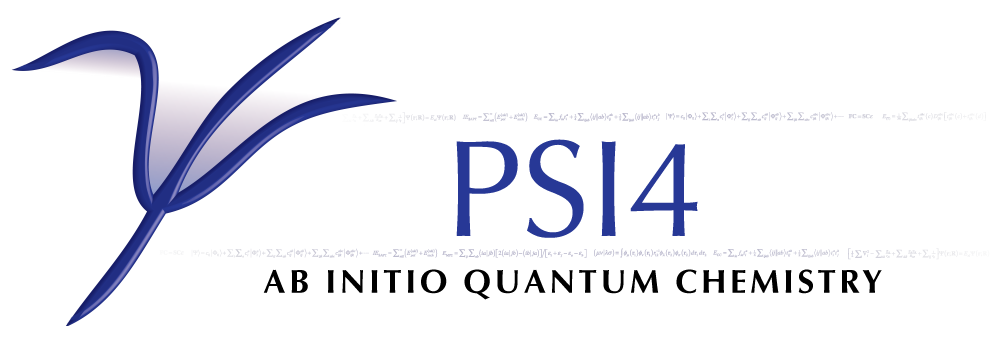
CCSORT¶
Sorts integrals for efficiency. Called before (non density-fitted) MP2 and coupled cluster computations.
General¶
AO_BASIS¶
The algorithm to use for the
terms
- Type: string
- Possible Values: NONE, DISK, DIRECT
- Default: NONE
CACHELEVEL¶
Cacheing level for libdpd governing the storage of amplitudes, integrals, and intermediates in the CC procedure. A value of 0 retains no quantities in cache, while a level of 6 attempts to store all quantities in cache. For particularly large calculations, a value of 0 may help with certain types of memory problems. The default is 2, which means that all four-index quantites with up to two virtual-orbital indices (e.g.,
integrals) may be held in the cache.
- Type: integer
- Default: 2
EOM_REFERENCE¶
Reference wavefunction type for EOM computations
- Type: string
- Default: RHF
INTS_TOLERANCE¶
Minimum absolute value below which integrals are neglected.
- Type: conv double
- Default: 1e-14
KEEP_OEIFILE¶
Do retain the input one-electron integrals?
- Type: boolean
- Default: false
KEEP_TEIFILE¶
Do retain the input two-electron integrals?
- Type: boolean
- Default: false
LOCAL_CORE_CUTOFF¶
Local core cutoff value
- Type: double
- Default: 0.05
LOCAL_CPHF_CUTOFF¶
Cutoff value for local-coupled-perturbed-Hartree-Fock
- Type: double
- Default: 0.10
LOCAL_CUTOFF¶
Value (always between one and zero) for the Broughton-Pulay completeness check used to contruct orbital domains for local-CC calculations. See J. Broughton and P. Pulay, J. Comp. Chem. 14, 736-740 (1993) and C. Hampel and H.-J. Werner, J. Chem. Phys. 104, 6286-6297 (1996).
- Type: double
- Default: 0.02
LOCAL_DOMAIN_MAG¶
Do generate magnetic-field CPHF solutions for local-CC?
- Type: boolean
- Default: false
LOCAL_DOMAIN_POLAR¶
Do use augment domains with polarized orbitals?
- Type: boolean
- Default: false
LOCAL_DOMAIN_SEP¶
- Type: boolean
- Default: false
LOCAL_FILTER_SINGLES¶
Do apply local filtering to single excitation amplitudes?
- Type: boolean
- Default: false
LOCAL_METHOD¶
Type of local-CCSD scheme to be simulated. WERNER (unique avaliable option) selects the method developed by H.-J. Werner and co-workers.
- Type: string
- Default: WERNER
LOCAL_PAIRDEF¶
Definition of local pair domains, unique avaliable option is BP, Boughton-Pulay.
- Type: string
- Default: BP
LOCAL_WEAKP¶
Desired treatment of “weak pairs” in the local-CCSD method. The value of NONE (unique avaliable option) treats weak pairs in the same manner as strong pairs.
- Type: string
- Default: NONE
PROPERTY¶
The response property desired. The unique acceptable values is POLARIZABILITY for dipole-polarizabilitie.
- Type: string
- Default: POLARIZABILITY
SEMICANONICAL¶
Convert ROHF MOs to semicanonical MOs
- Type: boolean
- Default: true